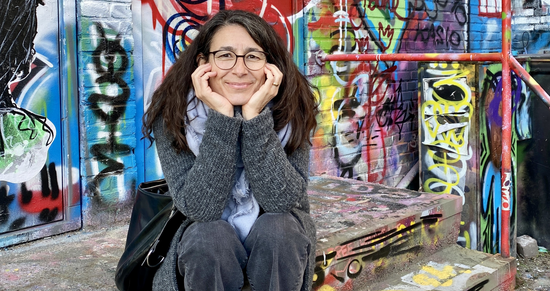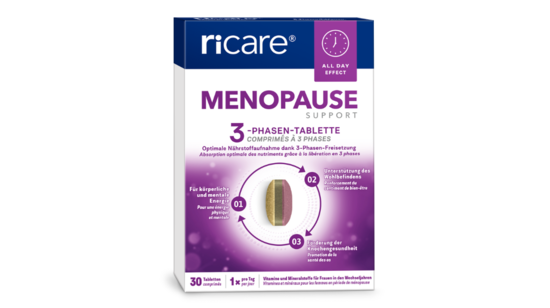Looking back now, I can’t really pinpoint exactly when menopause began for me. The first symptoms crept into my life quietly—so subtly that I didn’t recognize them for what they were. I must have been in my mid-forties when I first noticed some strange changes: I was slowly but steadily gaining weight, my body shape shifted—more belly, less behind. My hair became thinner and started falling out more. My skin changed too—it felt drier, and began sagging around my cheeks and chin.

Menopause: My Biggest Aha Moments
What I Wish I Had Known Earlier – Personal Experiences, Surprising Insights, and Honest Thoughts on an Often Underestimated Life Phase
More Than Just Signs of Aging
I dismissed these early signs of menopause as minor “inconveniences” that come with aging—not realizing they were part of something much bigger. It wasn’t until much later that I understood they were the opening chapters of a whole new stage of life.
After those initial changes, more surprises followed: my energy levels dropped, my memory began to play tricks on me, mood swings showed up, and heart palpitations and anxiety became regular nighttime visitors. Then came the hot flashes—a real turning point. One evening at an event really stands out in my memory: out of nowhere, I started to sweat. That alone was strange, but what truly unsettled me was the sudden, overwhelming heat surging through my body, along with a new, intense body odor I’d never noticed before.
“That’s when it hit me: Something significant was happening—something I hadn’t expected at all. Was this menopause?”
A Phase of Life That's Often Underestimated
Of course I knew menopause would come eventually. But I hadn’t taken it seriously. Everywhere I turned, I heard it was a completely natural phase you could handle easily with a positive attitude. So I didn’t want to worry about it in advance or stress about something that might not even affect me for years.
I wasn’t scared, nor did I have any clear idea of what to expect. No one around me was talking about it—it just wasn’t a topic of conversation. That only reinforced my belief that menopause was still far off, and certainly not something that would hit me hard or early.
But as life often goes, everything turned out differently—and much more surprisingly—than I ever imagined. Today I know: If I had had any inkling of what was really coming, I would’ve treated this phase of life with a lot more respect.
“I wish someone had slipped me a note saying: ‘Heads up—menopause starts earlier than you think, and it’s much more than just hot flashes.’”
My Aha Moments
1. Menopause starts earlier than you think—and it’s more than just the moment your period ends
For a long time, I thought menopause and “the change” were one and the same. Only later did I understand: menopause is just one milestone on a much longer journey. It’s technically the moment when your period has been absent for 12 consecutive months. I expected the “big change” to begin then. But in reality, it starts much earlier. Hormonal changes often begin creeping in as early as your mid-forties—and they manifest in all sorts of ways. Even after menopause itself, your body still needs time to recalibrate.
“What surprised me most: the changes started earlier—and were way more diverse than I expected.”
2. There are way more symptoms than just hot flashes
When I thought of menopause, I only associated it with hot flashes. They’re practically the symbol of this life phase—and the most commonly mentioned symptom. But the list is much longer than I ever imagined. It includes sleep disturbances, weight gain, hair loss, dry skin, heart palpitations, anxiety, joint pain, loss of libido, a change in body odor, decreased bone density, difficulty concentrating, and memory lapses—often called “brain fog.” Every woman has her own unique combination.
“I underestimated not only the range of symptoms—but also how long this phase would last.”
3. Menopause isn’t a sprint—it’s a marathon
At first, I thought menopause would be an intense but short phase—something you just get through, and then it’s over. But over time I realized: this is a long journey, full of ups and downs. It feels more like a marathon, with stretches where everything goes smoothly—and others where symptoms hit you like a freight train. Many times I thought the worst was finally behind me, only to realize it was still ongoing. I kept asking myself, “When will this finally be over?”—but there’s no clear finish line. Menopause requires patience and a lot of self-care.
“I came to understand: menopause is not just a physical challenge.”
4. Menopause doesn’t stop at the body
Suddenly, it wasn’t just about my physical health—my self-image, relationships, and even my role at work were up for re-evaluation. I realized that not only my body needed time to readjust, but my soul too. Mood swings, doubts about my self-worth, and feeling less “visible” all became regular themes. It was an emotional rollercoaster that challenged me to embrace this new stage of life.
“Because so many areas of life are affected, each woman experiences this time differently.”
5. Every woman experiences menopause differently
One of the biggest things I’ve learned: there is no “one-size-fits-all” menopause experience. For me, it wasn’t the classic hot flashes that dominated—it was sleep issues, mood swings, and a general feeling of dissatisfaction. Other women I know have completely different struggles: one deals with anxiety, another with weight gain, and some barely notice anything at all. There’s no single blueprint.
That makes it harder to talk about—especially when friends aren’t going through it yet or have totally different experiences. Still, I’ve learned how much it helps to be open. Hearing that other women also struggle with unexpected changes relieves the pressure and reminds you you’re not alone. That comfort and encouragement helped me find my own path through this time.
“The variety of experiences showed me how essential it is to talk—and to support one another.”
6. Help is available—you don’t have to go it alone
For a long time, I believed I just had to “tough it out,” like so many women before me. But now I know: even though menopause is still a bit of a taboo, there are many ways to get support—from talking with friends, to seeing your gynecologist, to seeking out counseling, books, or podcasts. No one has to go through this alone. Asking for help isn’t weakness—it’s a form of strength and self-care. Being open about it and accepting help promotes well-being, provides relief, and reassures you that you’re not alone.
“In sharing with others, I realized: menopause is not just about loss—it can also be freeing.”
7. Menopause can be liberating
Sure, there are things I had to let go of during menopause: youthful glow, the ability to have children, a sense of ease and visibility. I won’t pretend otherwise. But I also noticed: the end of fertility and the hormonal rollercoaster brought a new kind of freedom—no more periods, no more scheduling around cycles, no more pressure to meet expectations. For me, menopause marks the beginning of a new life phase—one where I can discover new things, claim more autonomy, be more relaxed, and perhaps grow bolder in shaping a life that truly suits me.
“Still, menopause remains a taboo topic, often burdened with negativity.”
8. Menopause: Between Visibility and Taboo
Menopause is certainly more visible today than a few years ago—there are books, podcasts, articles, even ads openly addressing it. But I still feel the topic remains in the shadows. As soon as it turns personal—when it’s about fears, uncertainty, or insecurity—things go quiet again.
I’m often surprised how deep this silence runs, even though we’re well into the 21st century. On the one hand, I find it encouraging that menopause is slowly gaining public attention. On the other, I still feel the uncertainty and shame it carries—even among friends and in the workplace. How much easier would it be if we could just talk openly and honestly?
What I See Differently Now—and Why Menopause Is a New Beginning
Looking back, I realize how much insecurity, self-doubt, and sleepless nights I could have spared myself had I known what was really coming. So many things that worried me could have been put into perspective—understood as normal parts of this phase.
I would’ve started the conversation earlier—with friends, my doctor, my partner, and even my kids. I would’ve allowed myself to accept help, rather than trying to manage everything on my own. Knowledge and dialogue would’ve shown me that I wasn’t alone—and that it’s totally normal to feel sick, overwhelmed, or even “crazy” at times.
Most of all, I would’ve listened to my body more, demanded less perfection from myself, and allowed myself to not have everything under control. Menopause is no time for perfection—it’s a time for self-care, compassion, and a good dose of humor—like when I smell “off” again or lose my train of thought mid-sentence.
With more calm, self-acceptance, and a willingness to embrace the changes early, I could’ve made things a lot easier. And above all: I would’ve felt less alone or “wrong,” and more like part of a community of women—each finding her way through this journey in her own way.
Today, I know: menopause is not the end—it’s the beginning of a new life chapter. My body may no longer be as youthful or high-performing as before, but I now see it as a loyal companion constantly adapting. For me, menopause is a new beginning—and a chance to rediscover myself all over again.

Rita Angelone
Rita Angelone is a mother of two, blogger, and columnist based in Zurich. For nearly 20 years, she has been writing authentically, humorously, and with heart about family life, societal topics, and personal experiences—from raising children to navigating menopause—on her blog in German dieangelones.ch . With her open and honest style, she encourages women to keep discovering themselves and life anew. When she’s not writing, she enjoys time with her family, loves to cook, and explores new corners of her hometown and the world. Follow Rita Angelone on Instagram and Facebook, for more insights into her everyday life and reflections.
Menopause Support
ricare® Menopause Support helps women through the menopause with an innovative multivitamin and mineral complex. It helps ensure your daily nutrient intake, supports mental clarity and bone health, and helps maintain normal cognitive function.
Topics for your body and your health
Valuable insights and helpful hints for your health – encouraging proactive self-care and enhancing your quality of life
-

Headaches and stress
Stress can soon lead to unpleasant headaches. A vicious circle that you can break.
Read more -

Hot flushes during the menopause
Why prevention is key when it comes to osteoporosis – everything you need to know about risk factors, nutrition and exercise to strengthen your bones.
Read more -

Menopause and bone health
Why prevention is key when it comes to osteoporosis – everything you need to know about risk factors, nutrition and exercise to strengthen your bones.
Read more
